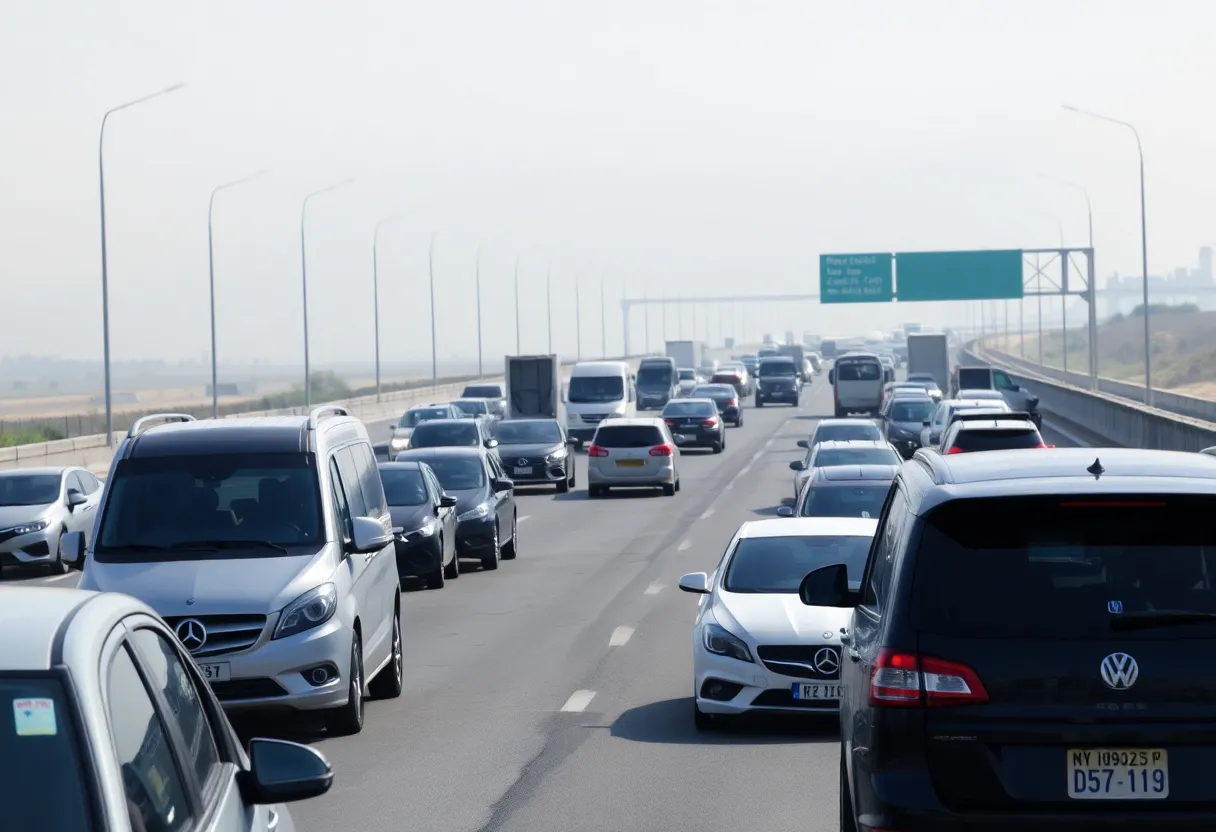News Summary
The Trump administration is moving to revoke California’s Clean Air Act waivers that allowed the state to have stricter emissions standards than federal regulations. This decision is part of broader debates in Congress regarding environmental regulations and legislative priorities. As Congress examines these waivers, the impact on both state and national vehicle emissions policies remains a significant concern, particularly with California’s ambitious zero-emission vehicle goals by 2035.
Trump’s Administration Takes Aim at California’s Clean Air Act Waivers
In a notable move, the Trump administration is working to reverse California’s Clean Air Act waivers which enabled the state to adopt tougher emissions standards than what the federal government mandates. This decision adds another layer to the ongoing debates in Congress surrounding environmental regulations, taxes, and other legislative priorities.
Shifting Directions in the Legislative Arena
President Trump has openly thrown his support behind a comprehensive policy and tax overhaul that House Republicans are calling “one big beautiful bill.” He has used his social media platform to urge members of Congress to join forces and move forward with this budget proposal, emphasizing its critical role in advancing his America First Agenda.
However, even with the President’s backing, lawmakers have been struggling with disagreements on how best to push through these initiatives. Senate Republicans are leaning towards a piecemeal approach instead, raising questions about the House’s ability to solidify its own various factions into a united front.
Mixed Messages and Ongoing Debate
Just hours prior to endorsing a massive legislative push, Trump’s administration provided some mixed signals regarding cutbacks on social safety net programs. This inconsistency reflects a larger challenge within Congress about how to effectively align the different priorities of lawmakers and the executive branch.
New Emissions Rules Under Review
The Environmental Protection Agency (EPA), led by Administrator Lee Zeldin, has recently presented three specific waivers for congressional review, which include Advanced Clean Cars II, Advanced Clean Trucks, and Omnibus NOx regulations. Zeldin has argued that these California-led regulations drive up vehicle prices and, ultimately, the cost of living for families.
These regulations set a bold agenda for the future: by 2035, all new passenger vehicle sales in California are expected to be zero-emission models. In addition, the state requires significant percentages of sales for semi-tractors and other truck categories to shift to cleaner technologies.
Impact of California’s Standards Nationwide
Interestingly, these stringent emissions standards have already been picked up by 12 other states and Washington D.C., which together influence nearly half of the light-duty vehicle market in the country and over a quarter of heavy-duty vehicle sales.
The Battle Ahead
When Trump took office, he rescinded a prior waiver that mandated large trucking companies shift to zero-emission vehicles by between 2035 and 2042. His administration’s current challenge is significant, especially since previous EPA Administrator, Michael Regan, had defended California’s evasion as essential in combating pollution and climate change.
Zeldin has critiqued the Biden administration for not providing these waivers for congressional approval. He argues that without this step, lawmakers have been sidelined from the chance to assess the real impacts these regulations could have across the nation.
What’s Next for Congress?
Congress now enters a crucial period, with a 60-day window to examine California’s emissions standards. They hold the power to enact a joint resolution of disapproval to invalidate these waivers. It’s important to note that if Congress does decide to reverse these regulations, it would create a hurdle for any future administration wishing to reinstate them, as it would require new legislation to pass.
Final Thoughts
This ongoing saga surrounding California’s Clean Air Act waivers underscores the complexities and conflicts in shaping national policy, especially environmental regulations that can have far-reaching effects. As lawmakers continue their discussions, the outcomes could very well shape not just the transportation sector, but the everyday lives of families across the country.
Deeper Dive: News & Info About This Topic
- San: Trump’s Administration Takes Aim at California’s Clean Air Act Waivers
- Forbes: Trump Adds Support for Doge Dividend Checks
- NY Times: Trump and Congestion Pricing in NYC
- Dispatch: Rep. Joyce Beatty Talks Democrats Fighting Trump
- The Hill: Trump Endorses House GOP Strategy
- Wikipedia: California Clean Air Act
- Google Search: Trump California Clean Air Act
- Google Scholar: California Clean Air Act
- Encyclopedia Britannica: Clean Air Act
- Google News: Trump California Clean Air Act







